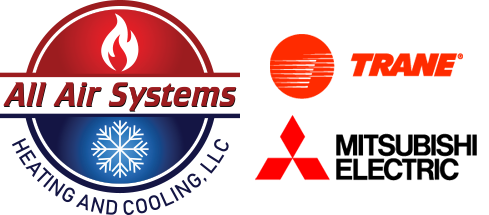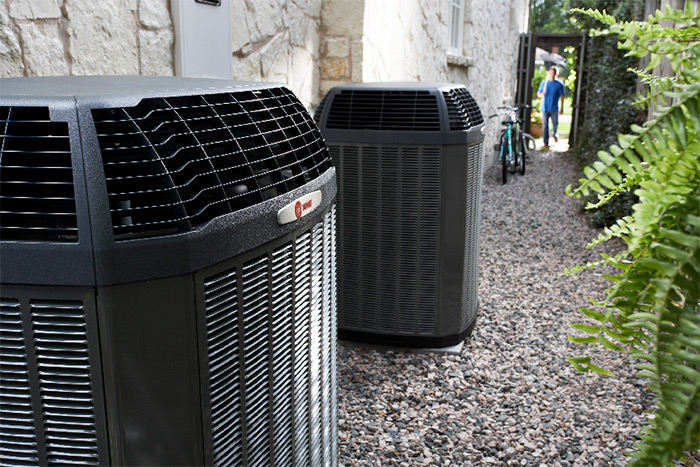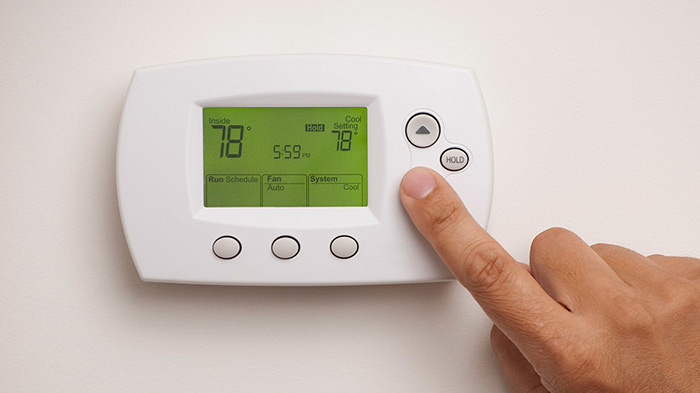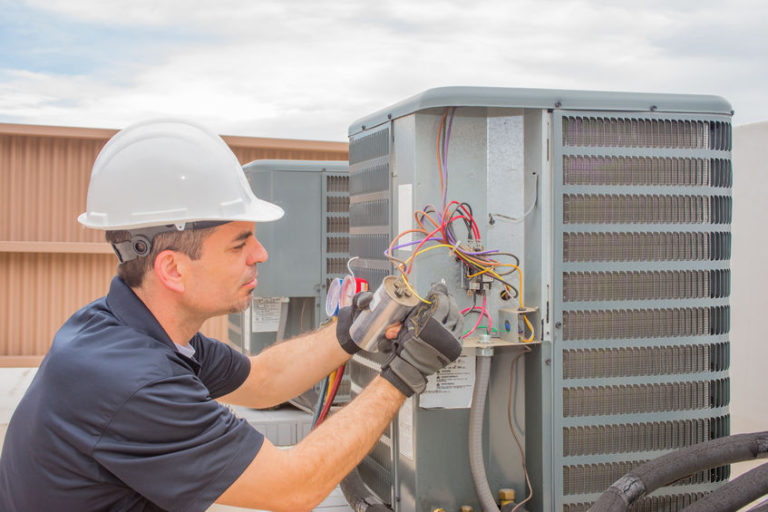Here are some other ideas about what you can do to improve the indoor air quality in your home and reduce the spread of viruses, germs, bacteria and mold in your home.
There are precautions you can take to make sure the circulating air isn’t spreading the virus.
One thing you can do is install portable air filters which clean small particles from the air. These units are available in different sizes and are effective in large and smaller homes. It’s estimated nearly 90% of American homes have some form of air conditioning which is more than any other country, except Japan.
Though air conditioning can help to relieve asthma and other respiratory symptoms, it is important to maintain your unit properly to avoid excess moisture around the unit itself, which can harbor bacteria and fungi. A poorly maintained air-conditioning unit, or an old one, can send those bacteria and fungi right into your airways.
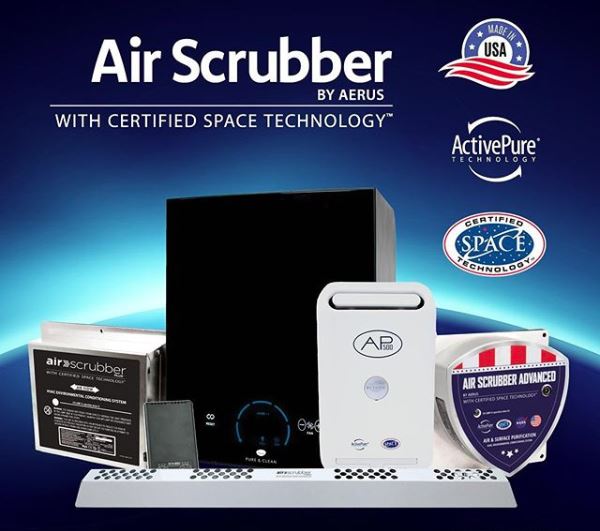
Can Air Conditioning be Made Safer During the Covid-19 Pandemic?
The most effective ways to improve your indoor air are to reduce or remove the sources of pollutants and to ventilate with clean outdoor air. In addition, research shows that filtration can be an effective supplement to source control and ventilation. Using a portable air cleaner and/or upgrading the air filter in your furnace or central heating, ventilation, and air-conditioning (HVAC) system can help to improve indoor air quality. Portable air cleaners, also known as air purifiers or air sanitizers, are designed to filter the air in a single room or area. Central furnace or HVAC filters are designed to filter air throughout a home. Portable air cleaners and HVAC filters can reduce indoor air pollution; however, they cannot remove all pollutants from the air.
Scientists believe Coronavirus is spread by respiratory droplets, which may travel several feet from someone who is coughing or sneezing. Covering your mouth when you cough or sneeze is the first step to control the spread. Residual contaminants can travel through your HVAC system, where all air in the home is circulated, and may contribute to the spread of an airborne virus. The Coronavirus is spread from person-to-person in a way that is similar to other viruses such as the common cold, the flu, and a sore throat.
A study out of the University of California Davis and the University of Oregon (PDF) discovered that opening up the windows in your house can effectively dilute the concentration of coronavirus in enclosed spaces. If contaminated air indoors is something that concerns you, that is a great first step to take.
Most air conditioners recirculate air within a space which means that they don’t draw fresh air in from the outdoors, as an open window would. In a large system serving multiple rooms, HVAC experts say having a filter in their own HVAC system is a way to filter out at least some ambient particulates and may help. The key is to find a residential filter that is a good medium between effective filtration and likely compatibility with your existing equipment. An attainable goal is to be removing at least 85 percent of airborne particles each time the air goes through the filter. In this way, you would still taking the air from one place to another, but at least you are mitigating it in some way. Some products range from a higher Minimum Efficiency Reporting Value (MERV) rated filter, electronic air cleaners, and ultra-violet sterilization systems.
While our attention is focused on the spread of Coronavirus, and we are thinking about the necessary precautions that are needed to reduce our chances of coming in contact with this virus, HVAC professionals know that Coronavirus is not the only disease, germ, virus, or pollutant we need to combat in our homes.
Medical Disclaimer
The information on this site is not intended or implied to be a substitute for professional medical advice, diagnosis or treatment. All content, including text, graphics, images and information, contained on or available through this web site is for general information purposes only. All Air Systems makes no representation and assumes no responsibility for the accuracy of information contained on or available through this web site, and such information is subject to change without notice. You are encouraged to confirm any information obtained from or through this web site with other sources, and review all information regarding any medical condition or treatment with your physician. NEVER DISREGARD PROFESSIONAL MEDICAL ADVICE OR DELAY SEEKING MEDICAL TREATMENT BECAUSE OF SOMETHING YOU HAVE READ ON OR ACCESSED THROUGH THIS WEB SITE.
All Air Systems IS NOT RESPONSIBLE NOR LIABLE FOR ANY ADVICE, COURSE OF TREATMENT, DIAGNOSIS OR ANY OTHER INFORMATION, SERVICES OR PRODUCTS THAT YOU OBTAIN THROUGH THIS WEB SITE.
